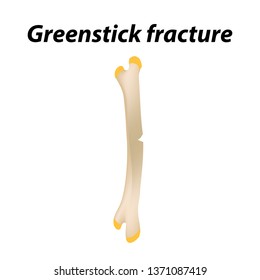Do Chiropractic Adjustments Produce Dependency? Clarifying Fact From Misconception
Do Chiropractic Adjustments Produce Dependency? Clarifying Fact From Misconception
Blog Article
Author-Hoover Corbett
You might have listened to that chiropractic modifications can result in a habit forming dependency, yet that's a common misconception. Numerous individuals discover relief without establishing any form of dependency. lower back pain relief is essential to understand truth objective of these adjustments and exactly how they match your total wellness strategy. So, just what does the scientific research state regarding chiropractic treatment and your wellness? Allow's explore the facts.
Understanding Chiropractic Adjustments and Their Function
When you consider chiropractic changes, it's vital to comprehend their function and just how they work. These adjustments intend to remedy misalignments in your spinal column and joints, promoting much better alignment and motion. By applying regulated force to details locations, chiropractors help minimize discomfort, improve feature, and enhance your overall wellness.
Chiropractic care concentrates on your body's ability to recover itself, highlighting the link in between the back and the nervous system. When your spinal column is lined up, it can decrease nerve interference, enabling your body to work efficiently.
Routine adjustments might also aid prevent future problems, keeping you energetic and pain-free. Inevitably, chiropractic care modifications offer to sustain your health and wellness, boost mobility, and boost your lifestyle.
Common Myths Concerning Dependency and Chiropractic Treatment
Many people hold mistaken beliefs about the connection in between chiropractic care and addiction therapy. One common myth is that chiropractic care changes develop an addiction-like dependency. Actually, several clients find remedy for pain and discomfort, however this doesn't mean they develop a mental or physical dependency.
Another misconception is that chiropractic specialists are simply attempting to maintain you coming back for more changes. A lot of chiropractic doctors prioritize your wellness and aim for long-lasting health and wellness as opposed to frequent gos to.
In addition, some think chiropractic care can change traditional dependency therapies, but it needs to match, not substitute, evidence-based treatments. Understanding these misconceptions can assist you make educated options about your health and wellness and wellness without dropping target to false information.
The Scientific Research Behind Chiropractic Care Adjustments and Individual Experience
While some might question the efficacy of chiropractic modifications, an expanding body of research supports their function in reducing discomfort and enhancing general function.
please click the next webpage suggest that back control can reduce pain from conditions like lower pain in the back, tension frustrations, and neck pain. When you undertake chiropractic care, the adjustments intend to recover correct alignment, enhancing your body's all-natural healing capacities.
Numerous patients report raised wheelchair and a better feeling of wellness after treatment. Furthermore, the therapeutic connection you construct with your chiropractic practitioner can improve your experience, as they provide tailored care customized to your needs.
This mix of clinical backing and favorable individual experiences helps clear up why chiropractic care changes are effective for several individuals seeking alleviation.
Verdict
To conclude, chiropractic modifications aren't addicting; they're created to enhance your well-being and advertise aggressive health care. By unmasking the myths bordering reliance, it's clear that these therapies can supply considerable alleviation without producing a cycle of addiction. Embracing chiropractic treatment as a complementary technique to standard therapies can lead to better health results. So, if you're considering adjustments, rest assured that they have to do with improving your lifestyle, not developing a dependence.
